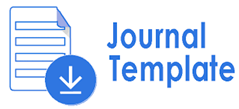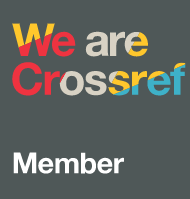A quantitative analysis of student competencies in managing dual roles in higher education
Abstract
Keywords
Full Text:
PDFReferences
Abeyrathne, D. K., & Ekanayake, S. Y. (2021). Self-Directed Learning (SDL) in Higher Education: Practices and Issues. Asian Review of Social Sciences, 10(2), 11–20. https://doi.org/10.51983/arss-2021.10.2.2985
Aloysius, S., & Salvia, N. (2021). Analisis Kesehatan Mental Mahasiswa Perguruan Tinggi X Pada Awal Terjangkitnya Covid-19 di Indonesia. Jurnal Citizenship Virtues, 1(2), 83–97. https://doi.org/10.37640/jcv.v1i2.962
Aye, L. T., & Biswa, A. (2025). A Mixed-Methods Study of Psychological Well-Being and Adjustment in Relation to Gender Differences and Institutional Support among Non-Local Students in Kolkata. International Journal For Multidisciplinary Research, 7(July), 1–38. https://doi.org/10.36948/ijfmr.2025.v07i03.49970
BPS-Statistics Indonesia. (2021). Catalog : 1101001. In Statistik Indonesia 2020 (Vol. 1101001). https://www.bps.go.id/publication/2020/04/29/e9011b3155d45d70823c141f/statistik-indonesia-2020.html
Britt, S. L., Canale, A., Fernatt, F., Stutz, K., & Tibbetts, R. (2015). Financial stress and financial counseling: Helping college students. Journal of Financial Counseling and Planning, 26(2), 172–186. https://doi.org/10.1891/1052-3073.26.2.172
Burgos, C., Jorquera, R., Aliaga, V., & López, E. (2023). Basic digital competences of university students before and during the COVID-19 pandemic. Frontiers in Education, 8(October), 1–11. https://doi.org/10.3389/feduc.2023.1201680
Cachero–Paderog, J. (2023). Flexible Learning in Higher Education Institution: Experiences of Instructors in a Private Higher Institution. JPAIR Multidisciplinary Research, 53(1), 1–28. https://doi.org/10.7719/jpair.v53i1.624
Creswell, J. W., & Creswell, J. D. (2018). Research Design: Qualitaive, Quantitave and Mixed Methods Approches. In SAGE Open (5th ed.). https://doi.org/10.4324/9781315707181-60
Dalimunthe, H. A., Dewi, I. K., Yunita, Y., Faadhil, F., & Lubis, D. M. G. S. (2024). Building a Supportive Learning Environment: The Role of Psychology in Increasing Student Motivation and Engagement. OPSearch: American Journal of Open Research, 3(4), 934–939. https://doi.org/10.58811/opsearch.v3i4.107
Darmawati, R., Maisharah K, S., & Farooq Mujahid, M. U. (2023). Mental Health Issues in Higher Education: Increasing Awareness, Access to Therapy, and Campus Support. West Science Interdisciplinary Studies, 1(09), 783–790. https://doi.org/10.58812/wsis.v1i09.212
El-Koumy, A. S. A. (2013). Student Self-Assessment in Higher Education: Alone or Plus? SSRN Electronic Journal, January 2010, 1–28. https://doi.org/10.2139/ssrn.2364817
El Faddoul, N., El Falaki, B., Idrissi, M. K., & Bennani, S. (2011). Adaptive assessment in learning system. Proceedings of the IADIS International Conference E-Learning 2011, Part of the IADIS Multi Conference on Computer Science and Information Systems 2011, MCCSIS 2011, 2(March 2018), 306–310.
Fahimah, H. M., Hindrayani, A., & Nugroho, J. A. (2021). Consequences of Student Part-Time Employment (Case Study of Sebelas Maret University Student). Social, Humanities, and Educational Studies (SHEs): Conference Series, 4(3), 53. https://doi.org/10.20961/shes.v4i3.49970
Fraenkel, J. R., & Wallen, N. E. (2019). How to Design and Evaluate Research in Educatioan. In McGraw-Hill Higher Education (Issue 7). http://dx.doi.org/10.1016/j.bpj.2015.06.056%0Ahttps://academic.oup.com/bioinformatics/article-abstract/34/13/2201/4852827%0Ainternal-pdf://semisupervised-3254828305/semisupervised.ppt%0Ahttp://dx.doi.org/10.1016/j.str.2013.02.005%0Ahttp://dx.doi.org/10.10
Geiger, V., Goos, M., & Forgasz, H. (2015). A rich interpretation of numeracy for the 21st century: a survey of the state of the field. ZDM - International Journal on Mathematics Education, 47(4), 531–548. https://doi.org/10.1007/s11858-015-0708-1
Hakim, A. R., & Hasmira, M. H. (2022). Strategi Kuliah Sambil Bekerja Oleh Mahasiswa (Studi Kasus: Mahasiswa Bekerja di Universitas Negeri Padang). Naradidik: Journal of Education and Pedagogy, 1(1), 30–37. https://doi.org/10.24036/nara.v1i1.6
Hollingsworth, M. A. (2018). Role of Self-Regulation and Self-Care With Academic Performance. Journal of Psychology Research, 8(6), 251–262. https://doi.org/10.17265/2159-5542/2018.06.002
Jackson, D., Riebe, L., Meek, S., Ogilvie, M., Kuilboer, A., Murphy, L., Collins, N., Lynch, K., & Brock, M. (2020). Using an industry-aligned capabilities framework to effectively assess student performance in non-accredited work-integrated learning contexts. Teaching in Higher Education, 28, 802–821. https://doi.org/10.1080/13562517.2020.1863348
Kahu, E. R., Ashley, N., & Picton, C. (2022). Exploring the Complexity of First-Year Student Belonging in Higher Education: Familiarity, Interpersonal, and Academic Belonging. Student Success, 13(2), 10–20. https://doi.org/10.5204/ssj.2264
Kalpana, D., Ed Research Scholar, M., & Professor, A. (2022). Academic Resilience and Problem Solving Ability of Higher Secondary School Students in Chennai District. International Journal of Creative Research Thoughts, 10(10), 2320–2882. www.ijcrt.orgwww.ijcrt.orgc229
Kaur, G. (2025). ONLINE EDUCATION DURING COVID -19 : CHALLENGES FACED BY HIGHER ONLINE EDUCATION DURING COVID -19 : CHALLENGES FACED BY HIGHER. April.
Kim, B., Jee, S., Lee, J., An, S., & Lee, S. M. (2018). Relationships between social support and student burnout: A meta-analytic approach. Stress and Health, 34(1), 127–134. https://doi.org/10.1002/smi.2771
Kindler, T., Schmid, T., & Graf, B. (2023). Studying in challenging times–a longitudinal study on social work students’ situations during the Covid-19 pandemic. European Journal of Social Work, 26(4), 734–745. https://doi.org/10.1080/13691457.2022.2124507
Knight, J. (2013). The changing landscape of higher education internationalisation - for better or worse? Perspectives: Policy and Practice in Higher Education, 17(3), 84–90. https://doi.org/10.1080/13603108.2012.753957
Kurniati, R. A., Sudarno, S., & Setyowibowo, F. (2023). Pembelajaran Daring dan Manajemen Waktu Terhadap Prestasi Akademik Mahasiswa Pada Masa Pandemi Covid-19. Jurnal Pendidikan Ekonomi (JUPE), 11(1), 1–9. https://doi.org/10.26740/jupe.v11n1.p1-9
Libago, Z. Z. A., Mangadang, P. A., Molok, H. D., Neri, M. G. A. B., & Noble, G. C. (2024). The Association Between Being Working Students to Academic Performance , and Time Management A RESEARCH. November. https://doi.org/10.13140/RG.2.2.13797.61921
Locke, E. A. (2008). The Blackwell handbook of principles of organizational behavior. In The Blackwell Handbook of Principles of Organizational Behavior. https://doi.org/10.1002/9781405164047
Makinson, G. (2002). Improving your presentation skills. Nursing and Residential Care, 4(5), 237–239. https://doi.org/10.12968/nrec.2002.4.5.12228
Mardelina, E., & Muhson, A. (2017). Mahasiswa Bekerja Dan Dampaknya Pada Aktivitas Belajar Dan Prestasi Akademik. Jurnal Economia, 13(2), 201–209. https://doi.org/10.21831/economia.v13i2.13239
McCue, J. D. (1991). A stress management workshop improves residents’ coping skills. Archives of Internal Medicine, 151(11), 2273–2277. https://doi.org/10.1001/archinte.151.11.2273
Nikolopoulou, K., & Miliopoulou, G. Z. (2024). Teaching Professional Communication: A Practical Approach. In Springer Proceedings in Business and Economics. Springer Nature Switzerland. https://doi.org/10.1007/978-3-031-51038-0_10
Nnadozie, R. C. (2015). a Model for Management of Workload of Academic. Corporate Ownership & Control, 12(4), 462–466. https://doi.org/10.22495/cocv12i4c4p4
Nurwidiyanto, A., & Zhang, K. (2020). STRATEGIES OF PATTERN GENERALIZATION FOR ENHANCING STUDENTS’ ALGEBRAIC THINKING. Periódico Tchê Química. https://doi.org/10.52571/ptq.v17.n36.2020.187_periodico36_pgs_171_185.pdf
Nuvianto Al Azis, E., & Yusanti, G. (2021). Part-Time Working Opportunities and the Impact on Students’ Academic Achievement. Middle Eastern Journal of Research in Education and Social Sciences, 2(3), 25–45. https://doi.org/10.47631/mejress.v2i3.277
Patel, V. N., Gandhi, V., Thummar, K., Parmar, R., Vekariya, J., Kapadiya, J., Oza, V. H., & Jadeja, S. (2022). A case study of students’ skill development through the project carried out for sustainable development of rural area for transformation to urbanization. Journal of Engineering Education Transformations, 36(Special Issue 2), 435–440. https://doi.org/10.16920/jeet/2023/v36is2/23066
Payusan, A., Arrofo, M. J., Codilla, L. A., Gaco, S., Dakay, D. K., Cabanilla, A. J., & Cortes, V. (2022). Priorities and Intentions of Working-Students Working amidst COVID-19 Pandemic. The Normal Lights, 16(2), 93–119. https://doi.org/10.56278/tnl.v16i2.1725
Preston, P. (2017). Stress management. Administrative Radiology Journal : AR, 15(8).
Rafiq, S. (2024). Al-Mahdi Research Journal ( MRJ ) Saleem Iqbal. May.
Richardson, M., Evans, C., & Gbadamosi, G. (2014). The work-study nexus: The challenges of balancing full-time business degree study with a part-time job. Research in Post-Compulsory Education, 19(3), 302–309. https://doi.org/10.1080/13596748.2014.920582
Scerri, M., Presbury, R., & Goh, E. (2020). An application of the mentoring framework to investigate the effectiveness of mentoring programs between industry mentors and student mentees in hospitality. Journal of Hospitality and Tourism Management, 45(December), 143–151. https://doi.org/10.1016/j.jhtm.2020.08.010
Statistics, E., Sciences, E., Nces, T., Nces, T., Sciences, E., Act, R., Nation, T., Card, R., Assessment, N., Progress, E., Condition, T., Report, E., & Grants, E. S. (2023). National center for education statistics.
Sumaiya, B., Srivastava, S., Jain, V., & Prakash, V. (2022). The Role of Effective Communication Skills in Professional Life. World Journal of English Language, 12(3), 134–140. https://doi.org/10.5430/wjel.v12n3p134
Sunardi. (2021). Pembelajaran Daring; Solusi Pembelajaran Selama Dan Pasca Pandemi Covid-19. In Elaborasi Ilmu Sosial Untuk Covid-19, Pengajaran, Pembelajaran serta eksistensi Lembaga Pendidikan Selama Pandemi Covid-19 (pp. 23–31).
Szwarcfiter, C., & Herer, Y. (2024). Managing the Balance Between Project Value and Net Present Value Using Reinforcement Learning. IEEE Access, 12, 7500–7518. https://doi.org/10.1109/ACCESS.2023.3346789
Tabassum, B., Moin, M., Abbas, Q., Kumbhar, M. I., & Khan, M. H. N. (2024). The Impact of Blended Learning on Student Performance. Journal of Education and Social Studies, 5(2), 360–371. https://doi.org/10.52223/jess.2024.5217
Tumin, T., Faizuddin, A., Mansir, F., Purnomo, H., & Aisyah, N. (2020). Working Students in Higher Education: Challenges and Solutions. Al-Hayat: Journal of Islamic Education, 4(1), 79. https://doi.org/10.35723/ajie.v4i1.108
Visser, C. W., & Venner, C. H. (2023). Scaling Up Project-Based Learning in Engineering Beyond 100 Bsc Students: a Practical Approach. Proceedings of the International CDIO Conference, 131–143.
Yadav, N. (2024). The Impact of Digital Learning on Education. International Journal of Multidisciplinary Research in Arts, Science and Technology, 2(1), 24–34. https://doi.org/10.61778/ijmrast.v2i1.34
Zimmerman. (2022). Becoming a Self-Regulated Learner: Beliefs, Techniques, and Illusions. Routledge, 5841(April), 315. https://doi.org/10.1207/s15430421tip4102
DOI: https://doi.org/10.33373/chypend.v11i1.7567
Refbacks
- There are currently no refbacks.

This work is licensed under a Creative Commons Attribution-NonCommercial-ShareAlike 4.0 International License.
Copyright (c) 2018 Universitas Riau Kepulauan

Ciptaan disebarluaskan di bawah Lisensi Creative Commons Atribusi 4.0 Internasional.















